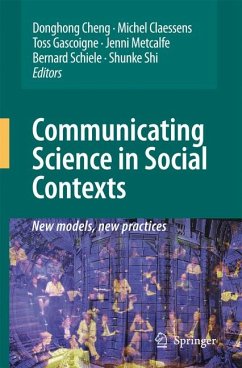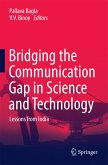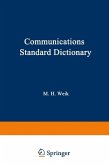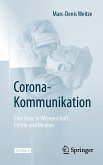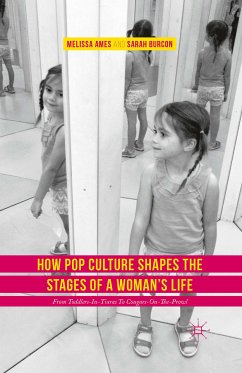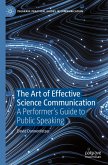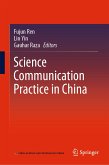Communicating Science in Social Contexts is the product of a long-term effort that would not have been possible without the research and expertise of the Public Communication of Science and Technology (PCST) Network and the editors. For nearly 20 years, this informal, international network has been organizing events and forums for discussion of the public communication of science.
This valuable tool is recommended for those interested in teaching people how to cope in a society dominated by science and technology, particularly researchers, science journalists, science museum and science centers staff, academic researchers who study aspects of PCST, scientists who interact closely with the public, press and public information officers of scientic institutions, science theater directors, and anyone interested in issues related to science communication.
Dieser Download kann aus rechtlichen Gründen nur mit Rechnungsadresse in A, B, BG, CY, CZ, D, DK, EW, E, FIN, F, GR, HR, H, IRL, I, LT, L, LR, M, NL, PL, P, R, S, SLO, SK ausgeliefert werden.

